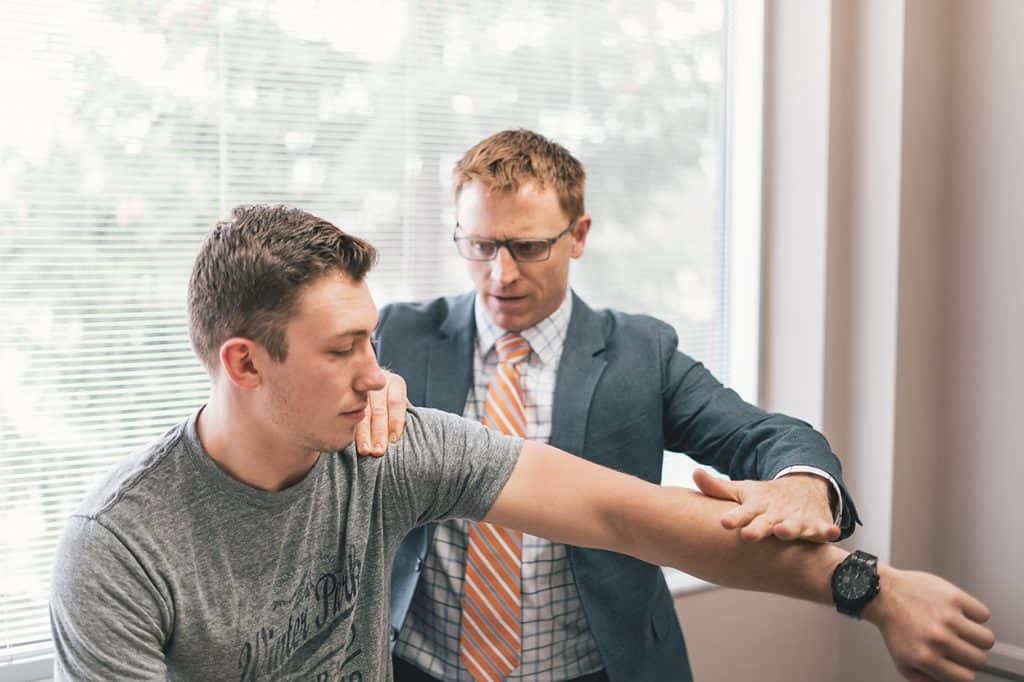
At the Center for Advanced Orthopedics and Sports Medicine, we use a comprehensive approach to diagnose and treat shoulder conditions. Diagnosis typically involves a physical examination, patient history, and imaging tests such as X-rays, MRI, or ultrasound. Treatment options include: